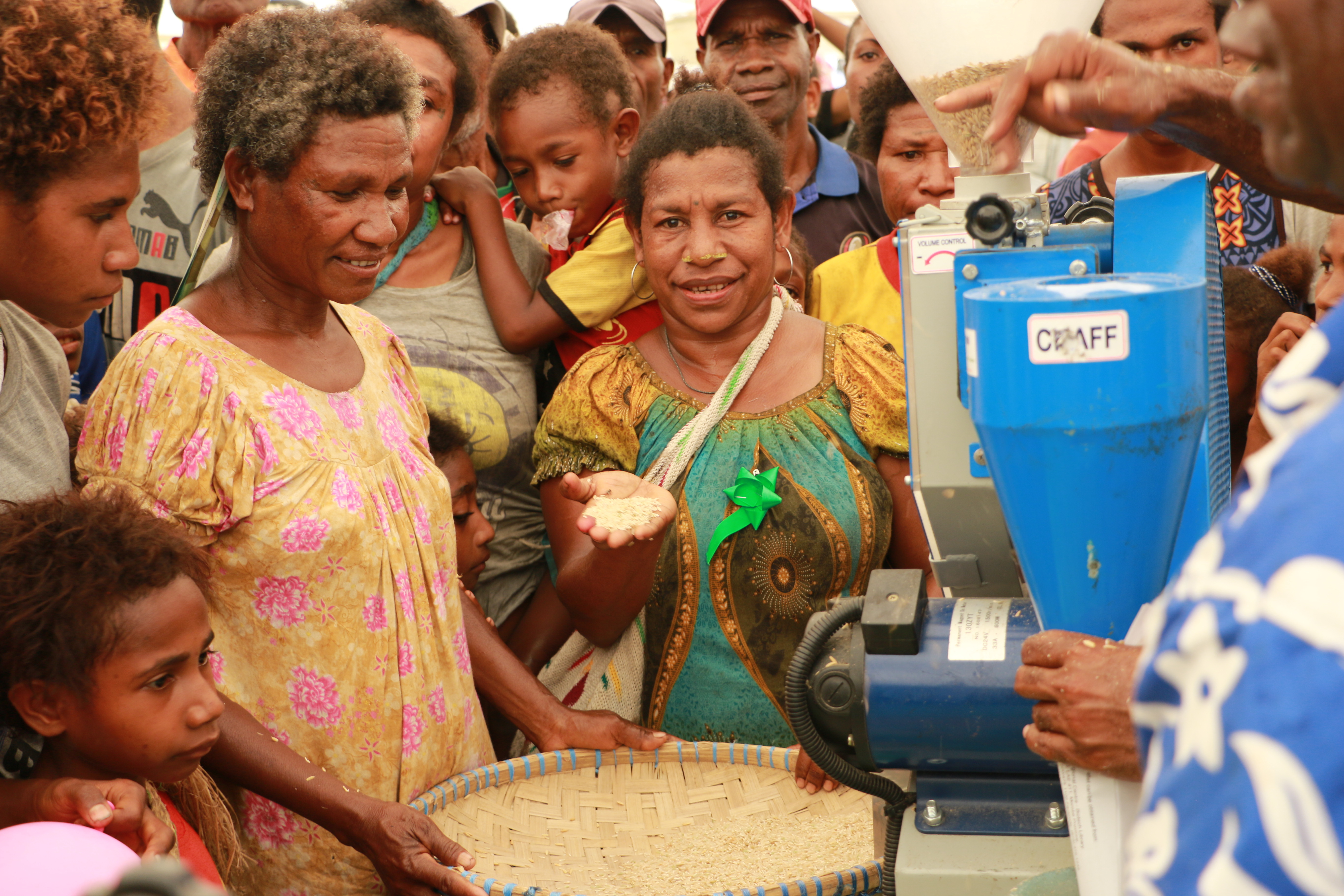Posted on March 25, 2019
A Papua New Guinea-Australia Partnership supported solar powered-rice mill project in Morobe Province is helping to reduce the impact of violence in families1.
This finding has been revealed following interviews with communities in the project to determine the impact the solar-powered rice machinery has had on their day-to-day lives. In these communities, women are the primary rice producers and are also responsible for feeding their families. Many women who were interviewed said they have increased income, increased economic stability, more variety in families’ diets, and improved food security overall.

Female rice farmer in Wampit demonstrating old rice milling machinery next to solar-powered mill.
“We are now saving money that we usually spend on rice to pay for things like school fees and medicines. We all love rice here and we used to pay a lot of money before to buy rice from the stores. Now this money is saved and used for other things.”
Unexpectedly, these women also commented that violence in their homes had reduced significantly since receiving the machines; as did the men.
“The project has reduced a lot of domestic violence in the families. In the past, if husbands and children were hungry, that was a trigger for disagreement and domestic violence because the mother had not prepared food.”
“When there was no money that caused fights too. Now we have rice, extra money that has been saved and we make money from selling rice, so everyone is happy. We are less stressed about money and food now.”
In October last year NARI delivered 12 of the rice milling machines to three communities in Wampit, Mutzing and Menyama to increase local rice production and improve food security.
The project is supported through the Incentive Fund and delivered by the National Agricultural Research Institute (NARI), Trukai Industries, PNG Women in Agriculture Development Foundation and the Morobe Division of Agriculture and Livestock across 30 communities in Markham, Huon-Gulf and Menyamya Districts.
Female rice farmer in Wampit training communities members in using new solar-powered milling machinery.
1. The evidence for this story comes from interviews with both men and women from families at a specific point in time and is anecdotal rather than based in quantitative data.
